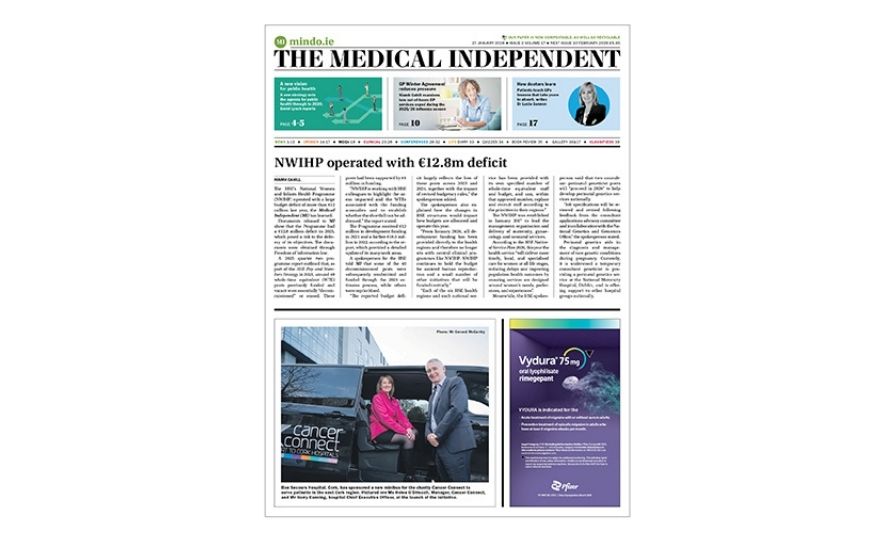An analysis of on-call costs at Tallaght University Hospital (TUH) in Dublin was recently undertaken as part of a broader review into a “dramatic” rise in allowances across the health service.
The sharp increase in on-call allowances in the health service last year was raised at a meeting of the health budget oversight group (HBOG).
The issue was discussed during the group’s December meeting, attended by representatives from the HSE, the Department of Health (DoH), and the Department of Public Expenditure, National Development Plan Delivery and Reform (DPENDR).
According to the minutes, DoH officials provided an update on their “ongoing analysis around the recent increase in on-call allowances” across the health service.
The case of TUH was discussed, with the HSE informing the meeting that it would prepare a “high-level case study” examining on-call expenditure at the hospital.
A HSE spokesperson told Medical Independent that on-call payments across the HSE, excluding disability services, increased in 2024 compared to 2023. One of the main drivers of this growth was a reclassification within the financial reporting framework of NCHD on-call allowances.
Regarding the TUH case study, the HSE confirmed that following the December meeting, DPENDR requested a detailed analysis of on-call costs and consultant rosters for TUH. The hospital completed an initial review in December 2024, comparing on-call costs for November 2023 and November 2024.
According to the spokesperson, both the HSE and DPENDR acknowledge that 87 per cent of the increase in medical on-call costs over that period was due to the reclassification of NCHD overtime. This change resulted from modifications to the payroll system introduced under the HSE’s pay foundation programme, as part of the “harmonisation of the pay chart of accounts and wage types”.
The remaining 13 per cent of the cost growth, which relates solely to consultant on-call payments, is currently under further review. The hospital has been asked to examine this portion in more detail.
“Once this exercise is complete, all findings will be considered with a view to optimising the use of on-call in all operational settings,” the spokesperson said.












Leave a Reply
You must be logged in to post a comment.